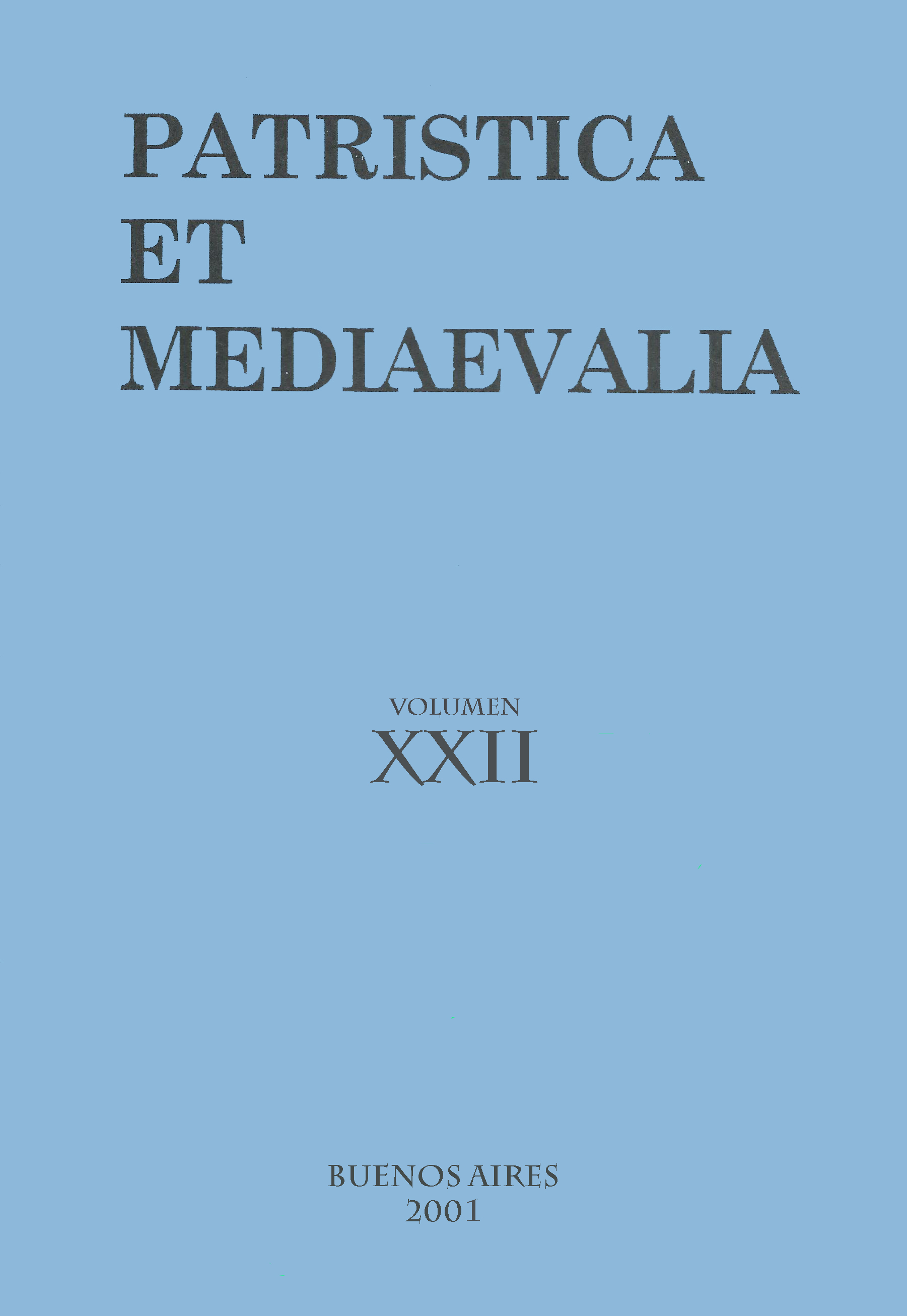Marsilius of Padua and the Theory of Popular Sovereignty
Abstract
Marsilius of Padua’s theory of popular sovereignty has been up to the date widely disputed. Despite the restrictiveconnotations of the concept of “weightier part” (valentior pars), the article seeks specially to point out the presence of a line of argumentation in the Defensar pacis, by means of which the universitas civium or valentior pars (insofar as they constitute the source of the legitimate political authority) are both understood in a widely inclusive sense. However, the historical projection and the political application of those theoretic concepts led, ultimately, to an emphasis on the unity and concentration of the legitimated power.Downloads
References
Castello Dubra, J. (1996). Algunas precisiones acerca del contractualismo de Marsilio de Padua. Veritas, 41, 493-510.
Castello Dubra, J. (1997). Finalismo y formalismo en el concepto marsiliano de ley. Patristica et Mediaevalia, 18, 81-96.
De Lagarde, G. (1948). La naissance de l’esprit laïque au déclin du Moyen Âge, Marsile de Padoue ou le premier théoricien de l’État laïque, 2ed. Paris: Éditions Béatrice.
Di Vona, P. (1974). I principi del Defensor pacis. Napoli: Morano editore.
Gewirth, A. (1951). Marsilius of Padua and Medieval Political Philosophy. New York: Columbia University Press.
Gewirth, A. (1979). Republicanism and Absolutism in the Thought of Marsilius of Padua. Medioevo, 5, 23-48.
Nederman, C. J. (1995). Community and Consent, The Secular Political Theory of Marsiglio of Padua’s Defensor pacis. London: Rowman & Littlefield.
Previté-Orton, W. (1928). The Defensor Pacis of Marsilius of Padua, edited by C. W.Previte-Orton. Cambridge: Cambridge University Press.
Quillet, J. (1970). La philosophie politique de Marsile de Padoue. Paris: Vrin.
Quillet, J. (1979). Marsile de Padoue, Oeuvres mineures, Defensor minor, De translatione Imperii. Texte établi, traduit et annoté par Colette Jeudy et Jeannine Quillet. Avant-propos de Bernard Guenée. Paris: Éditions du C.N.R.S.
Stenberger, D. (1981). Die Stadt und das Reich in der Verfassungslehre des Marsilius von Padua (Sitzungsberichte der wissenschaftlichen Gesellschaft an der Johann Wolfgang Goethe-Universität Frankfurt am Main, Bd. 8,3). Stuttgart: Steiner.
1. The authors who publish in this magazine accept the following conditions:
-
They retain the copyright and grant to the magazine the right of the first publication, with the work registered under the Attribution-ShareAlike 4.0 International License that allows third parties to use what is published as long as they mention the authorship of the work and the first publication in this magazine.
-
They can make other independent and additional contractual agreements for the non-exclusive distribution of the version of the article published in this magazine (eg. include it in an institutional repository or publish it in a book) provided that they clearly indicate that the work was first published in this journal.
-
They are allowed and recommended to publish their work on the Internet (for example on institutional or personal pages).
2. AutoArchive Conditions. Authors are allowed and encouraged to distribute post-print electronic versions of their manuscripts because it promotes their circulation, a possible increase of quotation and a major reach among the Academic community. Color RoMEO: blue.













